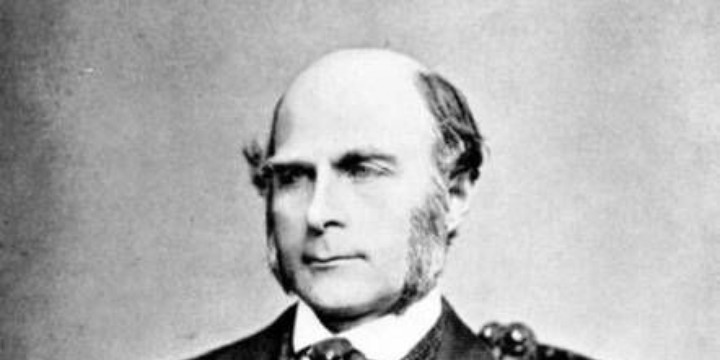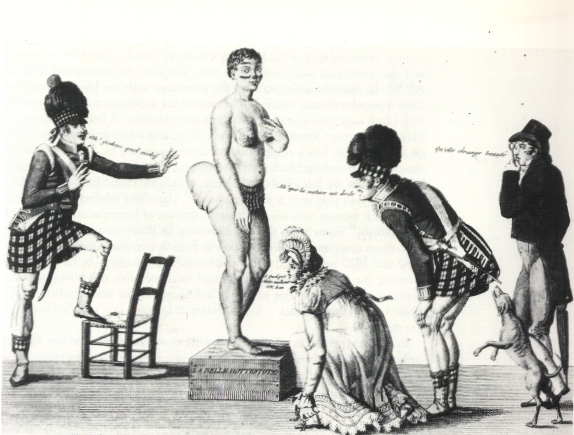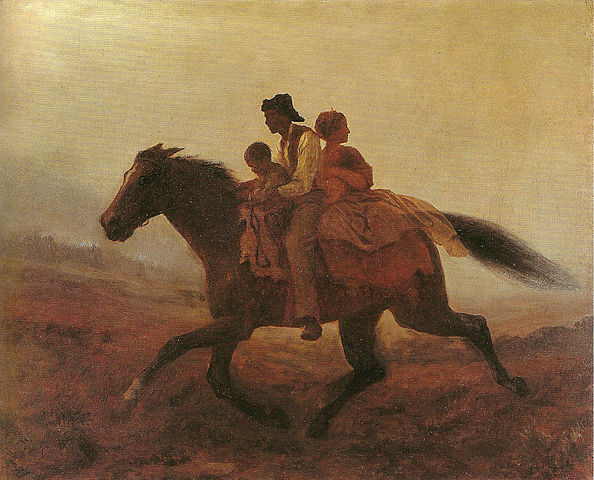10Sir Francis Galton’s Bell Curve Theory
Over the centuries, the concept of human intelligence has fascinated countless scientists. What is it that makes human beings think and make decisions differently from other animals? One of the most popular, and eventually most controversial, theories was Sir Francis Galton’s “Bell Curve Theory.” According to Galton’s enormously influential 1869 work Hereditary Genius, inherited human intelligence can be measured and mapped on a standard bell curve graph. In a chapter entitled “The Comparative Worth of Different Races,” Galton attempted to rank the mental abilities of various ethnic groups, concluding that people of African descent were at least two grades lower than Europeans (Australian Aborigines were ranked lowest). In some ways, Galton remains influential: He introduced the bell curve to biology and is considered a pioneer of modern intelligence testing. His views on intelligence and race, however, have been thoroughly debunked—although sadly not before they played a key role in the development of eugenics, a word Galton invented.
9Alfred Ploetz’s Theory Of Racial Hygiene
In the early 20th century, Alfred Ploetz’s theories of “Rassenhygiene” made him one of the world’s most popular and influential eugenicists. He has even been credited with helping to lay the ground for the Nazi takeover of Germany by developing the ideology of the “race-based state.” In 1936, Hitler personally granted Ploetz a prestigious professorship, where he continued to champion the eugenic ideas that would eventually underpin the murder of millions of Jews, Slavs, and Roma. In his book The Efficiency of our Race and the Protection of the Weak, Ploetz promoted the idea of a biologically superior Aryan race and discussed how racial mixing contributed to the deterioration of society. Ploetz believed that the preservation of the Aryan race necessitated enforced selective breeding, the murder of children with disabilities, and a ban on interracial relationships, which became synonymous with racial shame. Ironically, Ploetz initially believed that Jews were Aryans and that antisemitism would naturally die out over time. He changed his mind after becoming a supporter of the Nazi party.
8Georges-Louis Leclerc’s Ideas On Beauty
George-Louis Leclerc, Comte de Buffon, was an 18th-century French naturalist and aristocrat. He is often credited with introducing the term “race” and developed a theory of human racial origins approximately 100 years before Darwin. Unlike many of his contemporaries, Leclerc did not believe that each race was separate species, but used the term as a means of distinguishing people of different skin colors and physical features. In his writings, Leclerc theorized that Nordic Caucasians were the original human beings and that people with darker skin developed it in order to adapt to warmer tropical climates. He also believed that if they moved to cooler climates their skin would eventually become lighter. Buffon and his followers believed that beauty played a major role in establishing a hierarchy among the races. Predictably, their idea of beauty was rather European-centric, being based entirely on Ancient Greek statuary. Buffon’s follower Johann Friedrich Blumenbach actually created a scale ranking the races on their distance from Europeans. Blumbach is also credited with popularizing the term “Caucasian,” in part because he believed the Caucusus region was home to the most beautiful women in the world and was therefore a natural candidate for the birthplace of humanity.
7Sir William Petty’s Scale Of Creatures
Sir William Petty was an English scientist, philosopher, and economist who rose to prominence during the mid-17th century. While he is considered ahead of his time for his groundbreaking economic theories, Petty was also responsible for some of the earliest works of scientific racism, insisting that the various races were not just distinguished by physical traits, but also “in their natural manners and in the internall qualities of their minds.” In his manuscript The Scale of Creatures, Petty maintained that all living things created by God were a part of a hierarchical pyramid, with Caucasians at the top and lesser creatures such as worms at the bottom. According to Petty, the scale of man descended from “Middle Europeans” to the “Guiny Negroes” and the inhabitants of the Cape of Good Hope (presumably the Khoikhoi) who were “the most beastlike of all the souls” and the closest to apes and other lesser creatures. This became one of the theories that helped to justify the growing Atlantic slave trade.
6The Claim That Black Women Have Larger Birth Canals
In the first years of the 19th century, Sarah Bartmaan was one of a number of Khoikhoi woman brought to Europe to be crudely displayed to paying crowds as the “Hottentot Venus.” Eventually, the word “Hottentot” became synonymous with an exaggerated form of female sexuality, including enlarged genitalia and buttocks. Many naturalists considered the exhibit scientific proof that the Khoikhoi were a primitive link between mankind and animals. The “Hottentot Venus” exhibit also became the basis for the theory that African women were wildly hypersexual and had larger birth canals than other women. According to naturalists such as Henri de Blainville and Georges Cuvier, Sarah’s elongated labia was scientific proof that African women had naturally wide birth canals, enabling them to give birth with ease. The theory was seized upon by slaveowners in the New World, who used it to justify forcing black women to work while heavily pregnant and sending them back to work immediately after giving birth.
5Houston Stewart Chamberlain’s Anti-Semitism
Houston Stewart Chamberlain was an Anglo-German author of books on political philosophy. His 1899 work The Foundations of the Nineteenth Century was a key influence on Adolf Hitler and the Nazi philosophy of racial purity. Chamberlain’s works endorsed a profoundly anti-Semitic view of the world, in which the powerful and superior Aryan race is held back only by the negative influence of the Jewish people. According to Chamberlain, the Aryans could only attain their former greatness if the “parasitical” multiethnic elements of their society were eliminated. Chamberlain also described the Jewish people as a “black” race whose miscegenation with Africans while in exile in Alexandria had created a “mongrel” people, who “always retain this mongrel character.”
4Satoshi Kanazawa Claims That Black Women Are Unattractive
In 2011, the evolutionary psychologist Satoshi Kanazawa caused quite a stir when he published a blog on the Psychology Today website. The article, which was quickly removed from the site, sought to explain why black women were “far less attractive than white, Asian, and Native American women.” Kanazawa based his findings on a website that showed pictures of random people and asked users to assess their attractiveness. Black women scored an average of 3.5 out of 5, while women of other races averaged 3.7. While critics pointed out that this did not meet scientific standards, since the sample size was not stated and the background of those using the website wasn’t clear, Kanazawa insisted that his results showed that black women were “objectively” less attractive. He went on to speculate as to the reasons for this, concluding that it was probably because women of African descent had higher testosterone levels and therefore “more masculine features.” It’s worth noting that Dr. Kanazawa has a history of publishing controversial articles, including: Are All Women Essentially Prostitutes?, Girls Are More Intelligent Than Boys, But Men Are More Intelligent Than Women, and What’s Wrong With Muslims?
3Melanin Theory
African-American psychiatrist Frances Cress Welsing is known for her support of conspiracy theories, including the belief that AIDS was deliberately created to exterminate people of color. Another of her more controversial theories explores the origin of the white race. According to Welsing, white skin is a genetic mutation. While whites do have some amount of melanin and are able to tan, they possess less of an enzyme called tyrosinase, which allows melanin to be synthesized in the body. Welsing believes that this enzyme deficiency has had psychological implications, namely an inferiority complex and a corresponding aggression toward people of color. This inferiority complex has also led to an obsession with the black male genitals, which Welsing believes are the basis for everything from the Swastika to the Christmas tree and the Christian cross. According to Welsing’s theory, racism is the natural result of the “mutant” white race’s innate fear of genetic extinction via interbreeding with superior darker-skinned races.
2Drapetomania
In the early 19th century, the American physician Samuel A. Cartwright coined the word “drapetomania” to describe the mental disease that caused slaves to run away from their masters. Cartwright’s view was that black people were naturally submissive and better off under the care of a kind white master. Therefore, any slave who tried to escape must be suffering from a severe mental disorder. Slaves who showed signs of drapetomania could be treated by “whipping the devil out of them.” Cartwright also believed that latent drapetomania could be triggered if a slave was treated cruelly and given too much responsibility. However, if the slave master were to treat his slaves like children “with care, kindness, attention, and humanity,” then they would be cured of the compulsion to run away. While the idea that not wanting to be a slave was caused by a mental disorder seems crazy today, it was one of many racist scientific theories used to help justify forced servitude.
1Black People Are White People With A Skin Disease
In the late 18th century, various scientific theories began to surface in the United States about why Africans possessed their dark skin. While the most common attributed skin color to heat and other environmental factors, another claimed that dark skin was caused by a disease. The physician and founding father of the United States Benjamin Rush coined the word “Negroidism” to describe a curable skin condition which he believed that all black people possessed. Rush thought that the illness was similar to a mild type of leprosy, and could be passed down through the generations. As “proof” for his theory, Rush cited a slave named Henry Moss, who had gradually developed white patches across his body, beginning with the tips of his fingers. To a modern reader, this sounds like a clear case of vitiligo, but Rush firmly believed that Moss was being cured of the disease that caused dark skin. Rush also used his theory to explain why miscegenation was wrong, since any interracial children would still be afflicted with the disease. Sophie Sachsen-Gotha is a freelance writer, musician and artist. She loves animals, martial arts and playing the occasional prank.
























